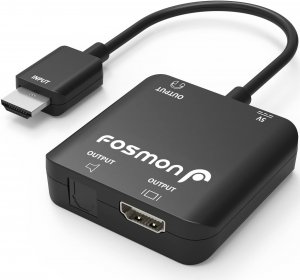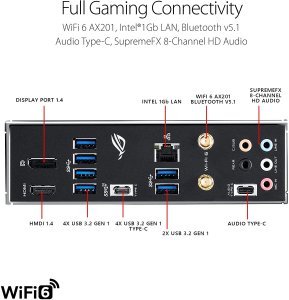alpharalpha
Weaksauce
- Joined
- Nov 10, 2017
- Messages
- 115
I'm doing a budget mini-itx build that will pull double duty as living room pc and htpc for streaming etc. Everything gets run thru my surround sound system so I'm wondering how much of a difference these different onboard audio setups will make using it this way--no headphone usage.
I'd like to get the AsRock H460M, good budget mobo for my needs, expect just an ALC887 and not much else dedicated to audio performance. for $25 more the AsRock H470 has a ALC1200, Nahimic so more than H460. Then for another $25 there's the very nice Asus Rog Strix B460-I Gaming with a whole lot of feature I don't need, but also with ALCS1220A and a bunch of extras dedicated to audio.
Am I really going to notice a considerable improvement going with the higher audio codecs not using headphones and running it thru my surround sound? No reason to spend extra just for audio if it's not going to matter for how I'm using it, but if it does I'll get it. Thanks.
I'd like to get the AsRock H460M, good budget mobo for my needs, expect just an ALC887 and not much else dedicated to audio performance. for $25 more the AsRock H470 has a ALC1200, Nahimic so more than H460. Then for another $25 there's the very nice Asus Rog Strix B460-I Gaming with a whole lot of feature I don't need, but also with ALCS1220A and a bunch of extras dedicated to audio.
Am I really going to notice a considerable improvement going with the higher audio codecs not using headphones and running it thru my surround sound? No reason to spend extra just for audio if it's not going to matter for how I'm using it, but if it does I'll get it. Thanks.
![[H]ard|Forum](/styles/hardforum/xenforo/logo_dark.png)


